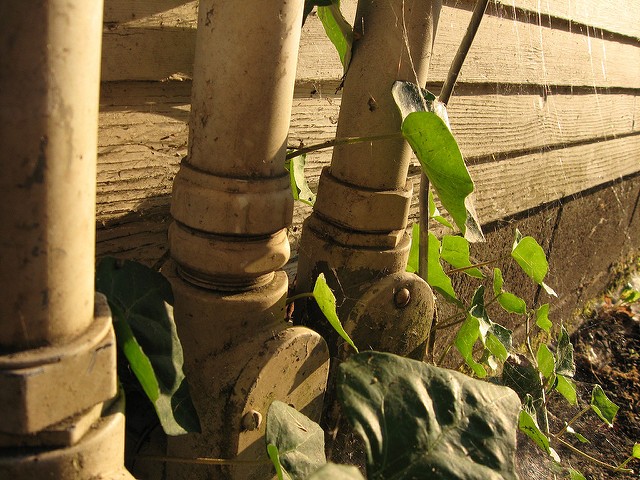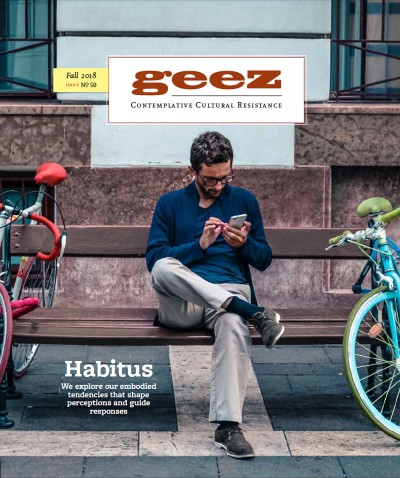Some Habits Can Incarnate Hope

Pipes Credit: Chris Phan (link below)
When I go to the toilet in our house, I don’t flush. And I haven’t flushed for years. It just piles up! Just kidding. The bathroom humour abounds when you live with a composting toilet in the middle of a city.
In the big picture, I know that this daily habit of not flushing is not making a crap of difference to the waste-fueled algae blooms in the big lake that gets our city’s sewage effluent. But with such a close connection to an alternative human waste management system, I pay more attention to how the three-quarters of a million people in our town deal with their shit when they live on the prairies next to a river lined with goopy dirt they call “gumbo.” When it rains hard or the system fails because it’s so old, raw sewage pumps right in the river and rolls past the houses.
Some cities are realizing the cost of treating waste and the value of composting it for agricultural uses (creating “humanure” as Joseph Jenkins calls it in The Humanure Handbook). My daily habit has strengthened my resolve to upscale personal change into systemic change. And that’s what our daily actions can do.
This issue of the magazine is about how our habits reflect our values and shape our way of thinking. We both decide and inherit our habits; some are innocuous, others have both great potential and great effect. We can pick a small regular act and invest it with intention, imbue it with meaning, and allow it to develop the integrity of our character. Mundane actions can strengthen resolve. Gestures of kindness towards a housemate or animal may seem inconsequential, yet they indicate the notion that goodness is possible.
Sure, this is self-help thinking. But it’s also the foundation for changing the world around us. One or more of our habits can be a microcosmic fulfillment of the better world we want to live in. A foretaste of justice and compassion is already here in a tiny act of kindness—a ritual of self-care, regular support for a neighbour or family member, preparation of a home-cooked meal, waiting upon others so as to dine together, or consciously opening ourselves up to the quiet spirit that knits us all together.
Habits are loaded. Our worldview is compressed into our routine gestures. For example, how do you respond to a person on the street asking for money? With a coin? Hostility? Guilt? A capitalist habit may be to walk past or stop and give a buck or two and consider it charity. A socialist habit may be to ask, “How are you today?” or offer a couple of bucks and think, “Our social welfare system sucks. This is the least I could do.”
Beneath the surface of an ambiguous habit lies a growing resolve to join a collective undoing of the powers that dominate. This is my way of connecting personal habits with social change.
There’s another reason why paying attention to habits is important. It is a way to fend off despair. As the distance between my former evangelical Christian self grows, my daily life is less motivated by hope (hope of going to heaven, for example, or hope that Jesus will come soon). I am more sustained by investing meaning and purpose into my daily activity. As I “take the high road,” “love my enemy,” “do the right thing,” or “live simply that others may simply live” (pick your cliché), I cease to hope for peace and consolation, and actually and fragmentarily become an incarnation of that hope. So, when I empty the composting toilet at home, it’s a chore, but it’s a meaningful chore that is delivering me into a more sustainable world.
Aiden Enns is the editor of Geez magazine.
Image: Chris Phan CC BY-NC 2.0
Dear reader, we welcome your response to this article or anything else you read in Geez magazine. Write to the Editor, Geez Magazine, 400 Edmonton Street, Winnipeg, Manitoba, R3B 2M2. Alternately, you can connect with us via social media through Twitter, Facebook, or Instagram.



Sorry, comments are closed.